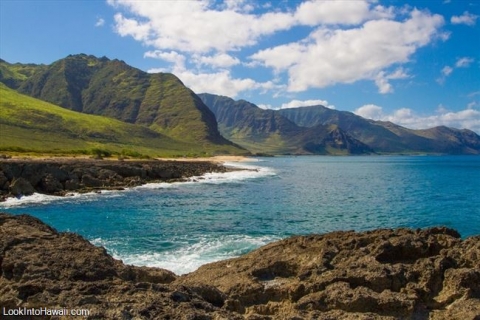University of Hawai‘iʻs Sea Grant College Program has received a $68.5 million grant to work with government, community, and non-profit partners to bring indigenous knowledge and practices to bear on long-term climate resilience in the state. The National Oceanic and Atmospheric Administration funding will support conservation efforts and build community governance and stewardship in areas that have been underserved by climate adaptation investments. It will use traditional Hawaiian land tenure and resource stewardship practices of the moku system, which divides islands into large tracts containing forested landscapes, cultural resources, and seascapes to maintain long-term abundance. Five moku on four islands were selected for the project based on their potential to promote Native Hawaiian stewardship practices and revitalize the moku system. Read more.
 In another project, UH engineering, water research, and tropical agriculture faculty have teamed up for a project to test AI-driven farm irrigation in the islands under a $2.4 million Conservation Innovation Grant from the U.S. Department of Agriculture. "The AI enhanced CropManage irrigation scheduling software will help farmers better match water delivery to specific crop water needs,” said co-principal investigator Jonathan Deenik, who has been an advisor to ARCS Scholars in Tropical Plant and Soil Sciences. Benefits include conservation of fresh water resources, increased profitability for farmers through reduced water costs, and increased overall sustainability of agriculture in Hawaiʻi. Read more. Deenik also participates in a Department of Energy–funded project examining the effect of fungal-bacterial interactions on nutrients such as carbon and nitrogen in soil, which are important players in carbon and nitrogen cycles closely linked to climage change. Read more about that project.
In another project, UH engineering, water research, and tropical agriculture faculty have teamed up for a project to test AI-driven farm irrigation in the islands under a $2.4 million Conservation Innovation Grant from the U.S. Department of Agriculture. "The AI enhanced CropManage irrigation scheduling software will help farmers better match water delivery to specific crop water needs,” said co-principal investigator Jonathan Deenik, who has been an advisor to ARCS Scholars in Tropical Plant and Soil Sciences. Benefits include conservation of fresh water resources, increased profitability for farmers through reduced water costs, and increased overall sustainability of agriculture in Hawaiʻi. Read more. Deenik also participates in a Department of Energy–funded project examining the effect of fungal-bacterial interactions on nutrients such as carbon and nitrogen in soil, which are important players in carbon and nitrogen cycles closely linked to climage change. Read more about that project.

